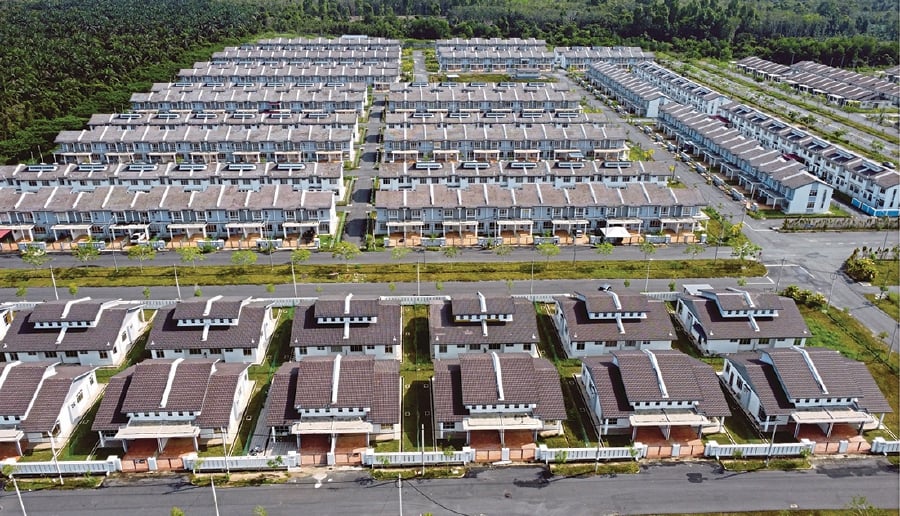KUALA LUMPUR: Houses prices in Malaysia have risen by 4.1 per cent, higher than the rate of income increases, the Dewan Rakyat heard today.
Deputy Local Government Development Minister Akmal Nasrullah Mohd Nasir said the cost of homes was increasing at double the rate of income, which rose by only 2.1 per cent.
"Houses are not affordable because most Malaysians do not have high income and also have high debt.
"To help first-time homebuyers, the ministry has implemented initiatives, such as the Malaysian Housing Financing Initiative or i-Biaya, in collaboration with the Finance Ministry.
"The Housing Credit Guarantee Scheme also allows those without a steady income or in the gig economy to buy a home without a down payment."
He said this in response to a question from Onn Abu Bakar (Pakatan Harapan-Batu Pahat), who wanted to know the ministry's efforts to tackle the continuous rise in house prices, especially for first-time homebuyers.
Akmal said the government had also introduced the Home Ownership Programme or i-Miliki to provide stamp duty exemptions on transfer documents and home loan agreements for first-time buyers of homes priced up to RM1 million.
To ensure that the house prices were under control and affordable, the government also introduced the affordable housing policy, he added, which put a ceiling price of RM300,000 on affordable housing projects.
"This is, however, subject to the housing policy at every state level."
He also said the government would carry out affordable housing index mapping based on the median income by state and region.
This method, he said, would take into account the median household income of the people according to locality, based on the multiple median method.
"This mapping is intended as a guide for developers and agencies providing housing to put a suitable price tag on homes at a particular locality.
"We also encourage a feasibility study to be conducted before any development is done to ensure that the houses built are based on the people's affordability, preventing from unsold houses," said Akmal.
He also told the lower house that there was an increasing trend of delayed and sick projects.
As of Jan 31, he said, the ministry had identified 166 delayed projects, 437 sick projects and 115 abandoned projects.
"But based on our projections for this year, there will be an additional 188 delayed projects and 101 sick projects, increasing the number to 354 delayed projects and 538 sick projects this year if there is no government intervention."







